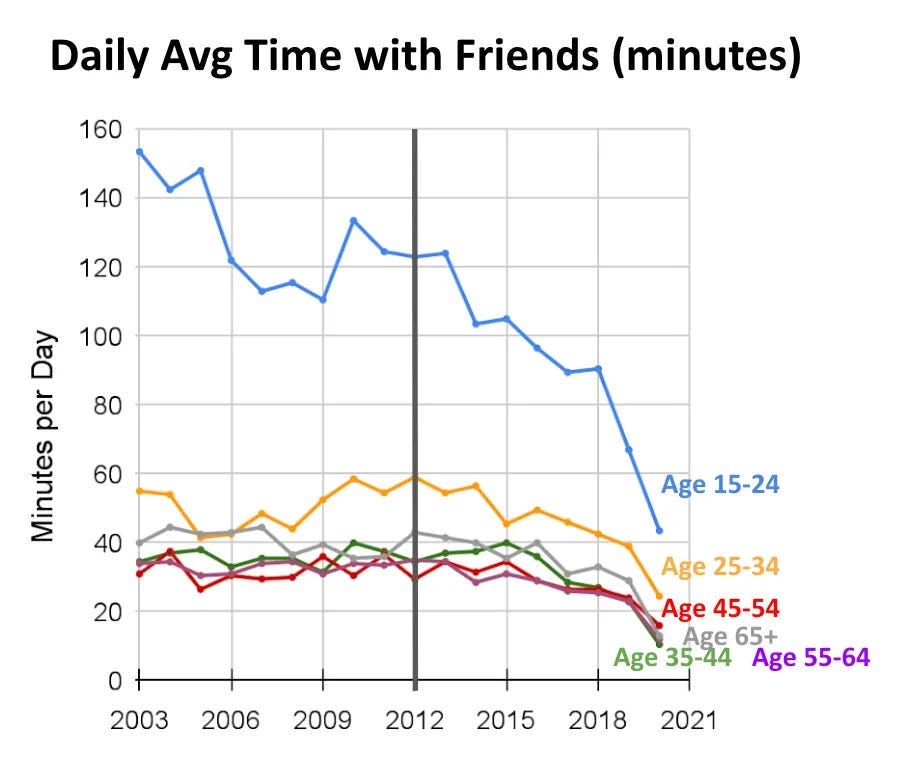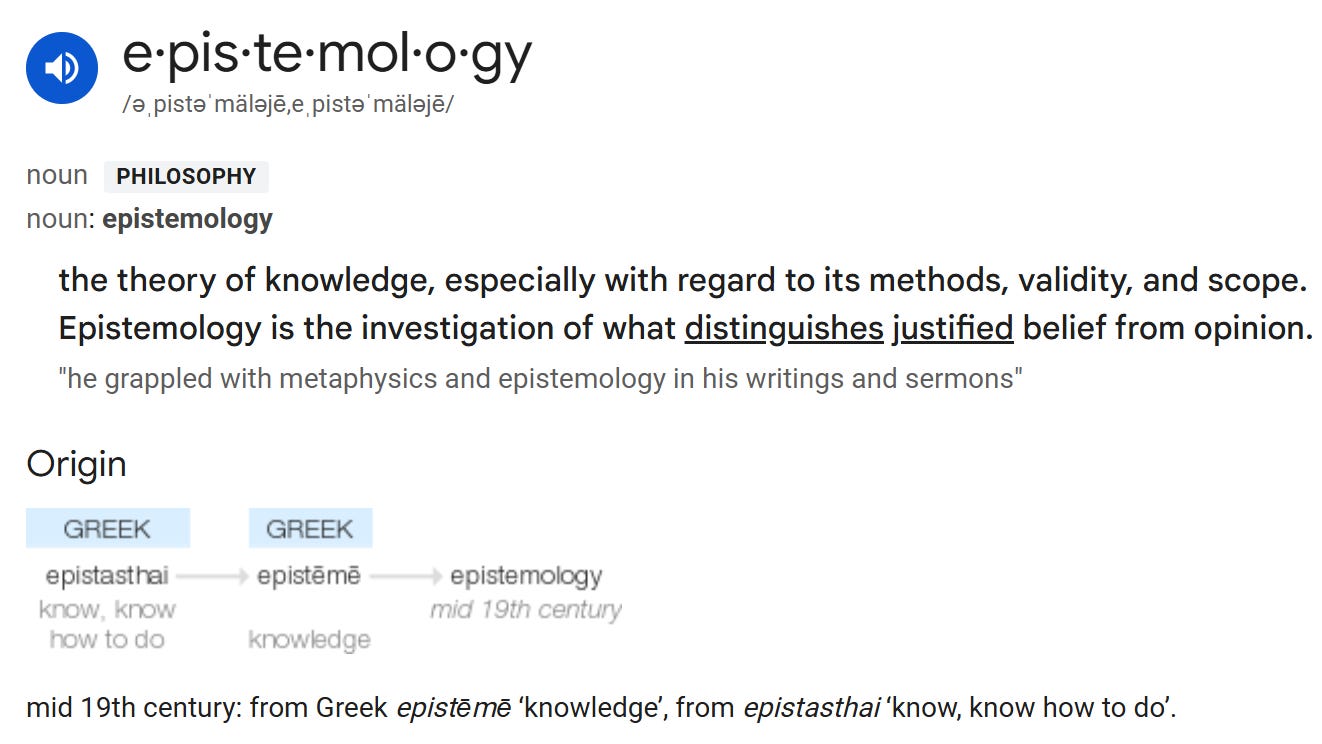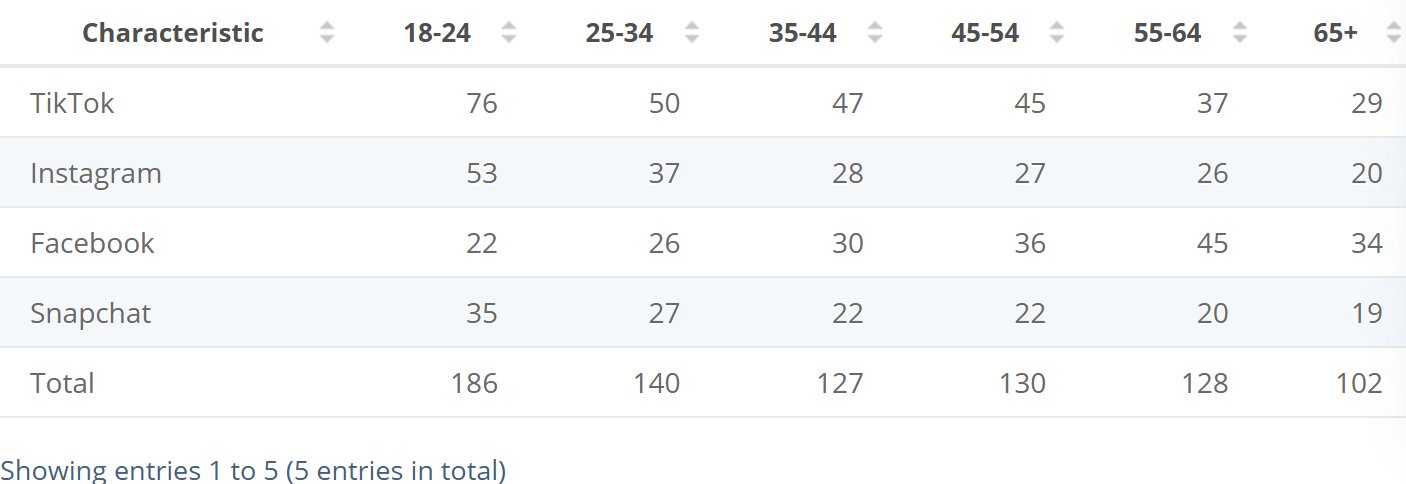What if American Morality is Mostly Shaped by Social Media?
Without transcendent morality, people stop caring about facts.
This week, I want to do something a little different. I want to share a theory grounded almost entirely in circumstantial and anecdotal evidence, but increasingly persuasive to me. If I’m right, it points to a much harder challenge than teaching kids the difference between fact and fiction.
I believe that we’ve lost our epistemological footing. Americans no longer think about what it means for something to be “good.” Instead, we ask only whether the person expressing it demonstrates sufficient loyalty (sometimes expressed as shared values and concerns) to our preferred tribe. That shift, from a North Star of Truth to a North Star of tribalism, can cause us to appreciate and pursue authoritarian actions. We must have a way of knowing– an epistemology for– what is Truly Good because without it, we’re likely to run with anyone we perceive as sharing our intent down the road to hell.
When I was a kid, I learned to read and to reason in tandem. The Aristotelian questions of: Who? What? Where? When? Why? and How? were just as foundational to my early childhood as phonics. I devoured logic puzzles and watched the news for fun. As a perfectionist, I wanted to be correct, which meant I needed a method of discerning Truth. I worry that by seeking righteousness based on in-group virtue signals from highly targeted algorithms instead of in-person friends, religion, or ideology, Americans have come to care more about virtue signaling than real Truth.
In depolarization circles, people often worry about kids falling for misinformation online. It’s a valid concern—but an old one. Media literacy is now embedded in many school curricula, and ten states mandate it in K–12 education. The facts are easier to find than ever. Original historical documents are digitized and searchable. Primary sources can be verified with a few clicks. What’s harder is convincing people to care.
The deeper problem is upstream:
Even if we know how to discern empirical Truths, do we even care?
Or do we only care that we send the right virtue signal to our tiny slice of the internet?
Polarized parts of the internet (which is a LOT of it) are post-truth. Instead, algorithms incentivize feeling moral without critical thinking or external measurement to determine whether actions or beliefs are actually morally good. In 2022, YouGov asked Americans where they believe morality comes from. Thirty-seven percent said it comes from “each person’s conscience.” Another 16% said it comes from society. Only 27% pointed to God or a higher power1. For many Americans, I fear that “morality” isn’t even reflective of the norms that dominate their in-person experience– instead– their morality is reflective of the norms that dominate their personalized algorithm on whichever social media app they spend the greatest amount of time on.
In 2023, teens spent nearly five hours online daily2. Meanwhile, time spent with friends has plummeted.

In 2024, the average adult clocked over two hours on social media per day, with young adults leading the charge.
For many, the internet has become their society. But it’s not like an in-person village with views grounded in real experiences lived by different people in the same place. Without a transcendent anchor like in-person community, religion, or philosophy, we’re left only with circular reasoning.
In the same YouGov survey I cited earlier, Americans were asked what it means to be moral. A third said: “Doing everything one can to lead to good outcomes for everyone.” But what counts as a “good outcome”? Apparently, whatever the individual defines it to be. It’s morality as mood: Do unto others what you feel is good for them, whether or not they agree. That’s not the Golden Rule. It’s finding meaning and purpose not in shared trust within a community of our neighbors, but in shared fear and moral crusades against “the enemy”— whoever that is, according to the algorithm this week. It’s mob rule.
And more than a lack of knowledge or misunderstanding of facts or severe differences of opinion, social media epistemology is what scares me most. Because historically, when massive numbers of people don’t have any way to reality check their morality, popular great evil follows.
https://today.yougov.com/politics/articles/44781-how-americans-think-about-morality-us-poll-2022
https://news.gallup.com/poll/512576/teens-spend-average-hours-social-media-per-day.aspx





